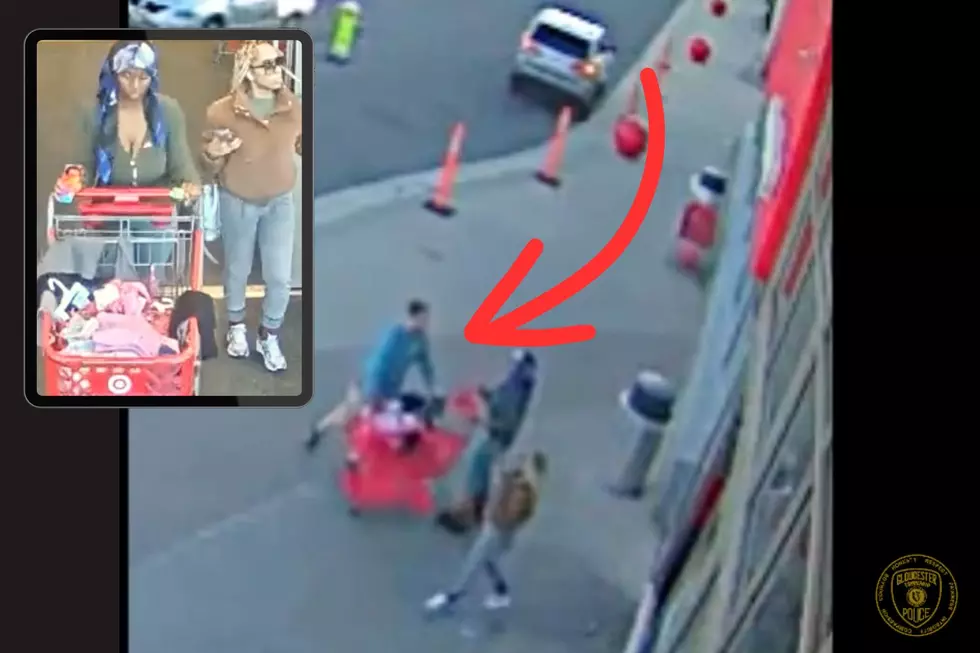
Second Dallas nurse with Ebola took domestic flight
DALLAS (AP) — A second nurse at a Texas hospital who provided care for the first Ebola patient diagnosed in the U.S. has tested positive for the disease, the Texas Department of State Health Services said Wednesday, four days after taking a domestic flight from Cleveland to Dallas.
Amber Joy Vison, 29, a nurse at Texas Health Presbyterian Hospital was monitoring herself for symptoms of Ebola, Dallas County Judge Clay Jenkins said. She reported a fever Tuesday and was in isolation within 90 minutes, Jenkins said.
Vinson flew to Cleveland on Friday, the same day a colleague, nurse Nina Pham, 26, was hospitalized. Pham's diagnosis with Ebola was disclosed on Sunday.
Health officials said Vinson was among those who took care of Thomas Eric Duncan, who was diagnosed with Ebola after coming to the U.S. from Liberia. Duncan died Oct. 8.
The department said a preliminary Ebola test was conducted on Vinson late Tuesday at a state public health laboratory in Austin, Texas, and came back positive during the night. Confirmatory testing was being conducted at the federal Centers for Disease Control and Prevention in Atlanta.
Vinson returned to Texas on Monday on Frontier Airlines Flight 1143 from Cleveland to Dallas-Fort Worth with 132 other passengers, according to the Centers for Disease Control and Prevention. The airplane's crew said she had no symptoms of Ebola during her return flight on Monday.
Infected Ebola patients are not considered contagious until they have symptoms. But the CDC is asking passengers on Monday's flight to call the health agency so they can be monitored.
The flight landed in Dallas at 8:16 p.m. Monday, stayed there overnight, and underwent a thorough cleaning before returning to service the next day. The cleaning was consistent with CDC guidelines, according to a Frontier Airlines statement released by CDC officials.
Officials have said they don't know how Pham became infected. But the second case pointed to lapses beyond how one individual may have donned and removed personal protective garb.
"An additional health care worker testing positive for Ebola is a serious concern, and the CDC has already taken active steps to minimize the risk to health care workers and the patient," the CDC said in a statement.
"What happened there (in Dallas), regardless of the reason, is not acceptable. It shouldn't have happened," Anthony Fauci, director of the Institute of Allergy and Infectious Diseases of NIH, said on MSNBC on Wednesday.
Fauci said he envisioned the CDC taking "a much more involved role" in establishing the proper training protocols for Ebola cases.
The CDC said its experts had taken part in interviewing the second health care worker to identify any contacts or potential exposures in the community.
Dr. Tom Frieden, head of the CDC, has acknowledged that the government wasn't aggressive enough in managing Ebola and containing the virus as it spread from an infected patient to a nurse at a Dallas hospital.
"We could've sent a more robust hospital infection control team and been more hands-on with the hospital from day one about exactly how this should be managed," he said Tuesday.
Frieden outlined new steps this week designed to stop the spread of the disease, including the creation of an Ebola response team, increased training for health care workers nationwide and changes at the Texas hospital to minimize the risk of more infections.
"I wish we had put a team like this on the ground the day the patient — the first patient — was diagnosed. That might have prevented this infection," Frieden said.
The stark admission came as the World Health Organization projected the pace of infections accelerating in West Africa to as many as 10,000 new cases a week within two months.
Health and Human Services Secretary Sylvia Burwell, appearing Wednesday on NBC's "Today" show, sidestepped questions about whether she had complete confidence in the Texas hospital where the health care workers have been diagnosed with Ebola or whether they should be transferred to one of four specialized hospitals. "We will keep all options and considerations right now," she said.
In a conference call late Tuesday, the nation's largest nurses' union described how the patient, Duncan, was left in an open area of the emergency room for hours. National Nurses United, citing unidentified nurses, said staff treated Duncan for days without the correct protective gear, that hazardous waste was allowed to pile up to the ceiling and safety protocols constantly changed.
RoseAnn DeMoro, executive director of Nurses United, refused to say how many nurses made the statement about Texas Health Presbyterian Hospital, but insisted they were in a position to know what happened.
A total of 76 people at the hospital might have been exposed to Duncan, and all are being monitored for fever and other symptoms daily, Frieden said. Nurse Nina Pham contracted the virus while caring for Duncan. Health officials are monitoring 48 others who had some contact with Duncan before he was admitted the hospital where he died.
Frieden said some of the world's leading experts on how to treat Ebola and protect health care workers are in the new response team. They will review issues including how isolation rooms are laid out, what protective equipment health workers use, waste management and decontamination.
In Europe, the WHO said the death rate in the outbreak has risen to 70 percent as it has killed nearly 4,500 people, most of them in West Africa. The previous mortality rate was about 50 percent.
Pham's exposure
Pham, 26, became the first person to contract the disease on U.S. soil as she cared for Duncan. She released a statement Tuesday through Texas Health Presbyterian Hospital saying she was "doing well," and the hospital listed her in good condition. She has received a plasma transfusion from a doctor who recovered from the virus, and the hospital CEO said medical staff members remain hopeful about her condition.
Pham first saw Duncan the evening of Sept. 29, the day after he was taken by ambulance to the emergency room. Her notes indicate that he had arrived in the intensive care unit a couple of hours earlier. He was alert, but complaining of abdominal pain and chills.
The next morning, Pham noted a nurse entered Duncan's room wearing a face shield, double gown and protective footwear. It's not clear if she was referring to herself.
On Oct. 1, Pham wrote in her morning progress note that two nurses entered Duncan's room wearing Tyvek suits, respirators, triple booties, triple gloves, and an apron. Her report describes nurses repositioning Duncan and providing emotional support. They later changed Duncan's gown and bed linens, turned and repositioned him and wiped down his arms. They also mopped the floor with bleach and wiped down surfaces. He said he was feeling better and asked to watch an action movie.
Pham was also in Duncan's room Oct. 7, the day before he died. Progress reports note he had loose, watery stool and nurses had difficulty inserting a needle at one point. Pham's notes describe nurses going in and out of Duncan's room wearing protective gear to treat him and to mop the floor with bleach.
She also notes that she and other nurses were ensuring Duncan's "privacy and comfort" and providing emotional support.
Vinson's exposure
Vinson, like Pham, was actively engaged in caring for Duncan. She inserted catheters, drew blood, and dealt with Duncan's body fluids.
She was with him Sept. 30, the day he tested positive for Ebola. And like Pham, the reports say she wore protective gear and a face shield, hazardous materials suit, and protective footwear. At the time, Duncan's body fluids were highly infectious if someone made contact with them. He had extremely watery diarrhea, a fever of 102.7 and severe stomach pain. An hour later, Vinson inserted a catheter.
Early the next morning she came in again, wearing all the protective gear mentioned before and a respirator mask. Later that night she cared for him again, with similar protection and with Duncan exhibiting similar ailments.
Vinson herself wrote up progress notes two days before Duncan died, noting in the early dawn that a blood draw had inaccurate results.
The evening before Duncan died Vinson was again at his bedside, another nurse wrote. Vinson herself wrote that she entered the room wearing proper full protective equipment and gave him a bag of saline in an IV.
Among the changes announced Tuesday by Frieden was a plan to limit the number of health care workers who care for Ebola patients so they "can become more familiar and more systematic in how they put on and take off protective equipment, and they can become more comfortable in a healthy way with providing care in the isolation unit."
(© 2014 The Associated Press. All rights reserved. This material may not be published, broadcast, rewritten or redistributed)
More From New Jersey 101.5 FM









